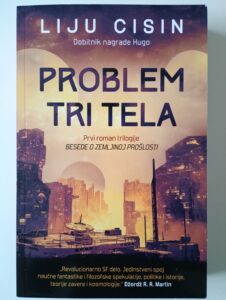The Rise of Endymion (1997)

…………………………………………………
The Rise of Endymion Book Review
The Rise of Endymion is a 1997 science fiction novel by Dan Simmons. It is a solid conclusion to this venerable series, though it’s easily the weakest of the four installments.
………………………………………………….
“No lifetime is long enough for those who wish to create“
…………………………………………………..
…………………………………………………..
The story continues directly from its predecessor. Pax, which is the military organization of the Church, has taken over the universe. It’s up to our heroes to stop them and end the sacrilegious use of resurrection that they employ. There are so many problems I have with this novel, but the prime one is that Simmons failed to properly conclude some of the arcs and to give the answers that are satisfactory. This was always going to be an issue with these sequels. On the one hand, I do appreciate that he set out to actually finish the story, but on the other hand, it perhaps would have been better to leave ‘Hyperion’ as it is.
The worst offender when it comes to disappointing answers has to be the Shrike. What was once the coolest, most intriguing villainous presence was delegated to a watcher status. His arc in this novel was frustrating, but his origin story was a huge letdown as it was anticlimactic and tedious. I wished that he remained a mystery at the end of the day.
Aenea and Raul fared much better, but with some caveats. I did find her arc to be quite familiar as the messianic figure has after all always been a staple of fantastical fiction. However, she was still very likable, heroic and memorable. Raul is the highlight. I do get why some may find his character frustrating, but I found his stumbling idiot personality relatable as he was always supposed to be just a regular guy stuck with this godlike female figure. Their romance was creepy at first, but it eventually blossomed into something quite beautiful. There is no denying that the ending of this book was incredibly moving. It was unexpected, daring and poignant, almost making up for so many hurdles that came before it.
…………………………………………………..
…………………………………………………..
Other characters did not get much to do as the roster here is huge. Father de Soya is once again a wonderfully human, sympathetic figure. A. Bettik was thoroughly sidelined this time around, but it was nice seeing a couple of the pilgrims from the original two novels return with Martin Silenus being the most interesting one per usual. I did like the evil pope and that scene where they kill Aenea was unforgettably dark, but Nemes was beaten a bit too easily, though that battle was quite a lot of fun for sure.
Dan Simmons is a master storyteller when it comes to intricate world building and clever SF ideas. There are so many worlds here that we got to explore that were exciting and unique along with some concepts that were original for the genre and quite fascinating. I even liked that mountaineering section that most apparently hate as it was pretty adventurous. This is an author who is very adept at dealing with SF tropes, both old and new. His dialogue is also pretty good, though thematically speaking this novel suffered in comparison to the first two books.
I found The Rise of Endymion to be worse than its predecessor in much the same way that I found ‘The Fall of Hyperion’ to be inferior to the masterful original. What I’m trying to say here is that Simmons knows how to start a story well, but he doesn’t quite know how to finish it properly with too many loose threads left dangling by the end.
The whole first person narrative shtick with the beginning and ending being the same appealed to me as it was quite intriguing and I actually really liked Raul as I’ve already stated. My issue here is that this novel was way too preoccupied with religion as its main subject. Simmons has always been obsessed with religion way too much for this genre, but in this instance he even outdid himself by making the Church so abhorrently evil. He eventually concluded the novel by actually attacking organized religion that is corrupted and not all of religion, which was a sound idea, but getting to that point was too messy and preachy.
…………………………………………………..
…………………………………………………..
The book suffered from a serious case of extensive exposition and an overreliance on dues ex machina. The pacing is quite bad, resulting in so many sections being quite boring. It’s a huge book that is surely epic, but too many plot points were solved through accident instead of character actions. It’s an emotionally engaging novel undoubtedly, but a massively problematic one structurally.










